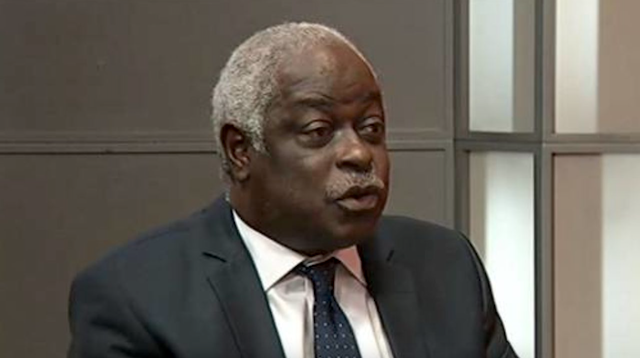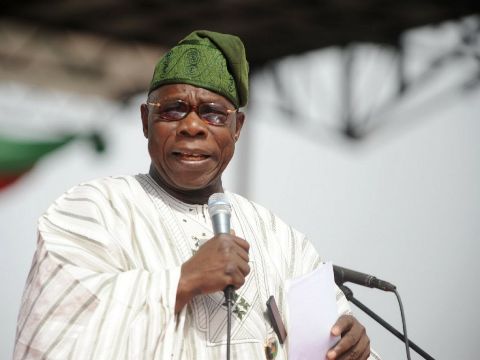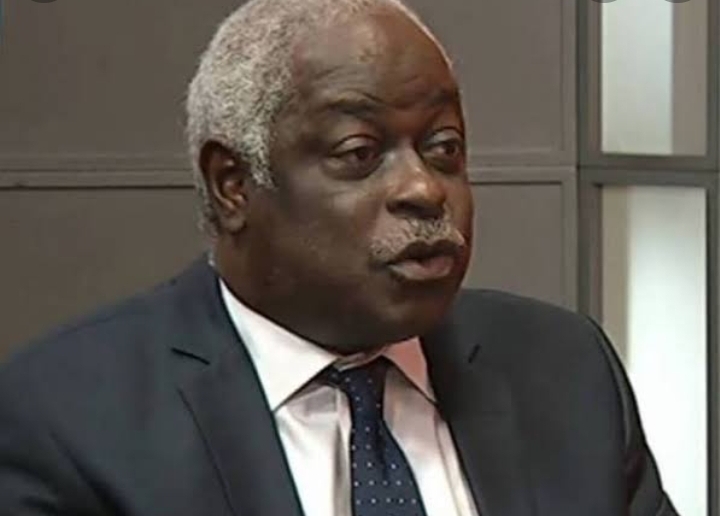The All Progressives Congress (APC) presidential candidate, Mr. Bola Tinubu, has merely announced a longstanding intention. His naming of former Borno governor, Mr. Kashim Shettima, as his running mate confirms what is perhaps a long conceived preference for a Muslim-Muslim ticket for his 2023 race. That preference is neither so original nor earth shaking. On the contrary, many are likely to see it as a mere cut and paste version of the MKO Abiola template in the June 12, 1992 presidential election.
The Muslim –Muslim gamble worked for Abiola because of his uniqueness as a genuine pan-Nigerian citizen. Abiola was first and foremost a genuine altruistic trans national philanthropist. He wanted nothing in immediate obvious return except open acknowledgment of his inherent goodness of heart across the nation. His ethnicity was not a badge on his forehead. On the contrary, Tinubu is an astute political investor. His generosity is targeted political investment aimed at specific outcomes and personal benefits. He is proud of and hardly hides his Yoruba identity. To those who have benefitted from the man’s generous handouts especially in Nigeria’s ‘northern hemisphere’, the pay back hour is at hand. The man is about to come knocking on every door for votes in return for cheques cashed in the past.
Nonetheless, Tinubu arguably rode on the fortunes of the June 12 political excursion into public notice. A NADECO militant who roamed the globe as an associate rebel with a democratic cause eventually returned home triumphant to harvest the smoke trail of June 12 into a personal political fortune. Again, that trajectory is neither strange nor so original. It was just a matter of recognizing an opportunity that offered itself on a platter and seizing it. Time has passed and the Nigerian political landscape, compass and thermometer have all altered significantly.
As the flag bearer of the APC, a ruling party with a tattered performance record and overall miserable reputation, Mr.Tinubu knows he has an all -important election to win or lose. If he wins, a life ambition will have been fulfilled. If he loses, he may not have another opportunity to stand for any other election in life. Therefore, his choice of a running mate for 2023 can only be part of a strategic political arsenal to win power first and foremost. In a national election, politicians look for votes where they exist in quantum and recruit allies that can help them harvest those votes. Astute political animals are not in the business of mining sentiments or pandering to crass sectarian emotions. It is only when they ascend power that they can exploit the machinery of governance and the power of public opinion to assuage popular sentiments wounded in the bloody hunt for winning votes.
To every intent and purpose, therefore, Mr. Tinubu’s choice of Mr. Kashim Shettima is well within the bounds of mundane political expediency and his democratic prerogative of choice. It should ordinarily not cause so much indigestion among the enlightened citizenry. The standard argument has always been that faith remains a private predilection. The choice of individuals in this area remains in the private domain. This is true to the extent that, in theory, a public office holder’s choice of what and how to worship should not affect his conduct or efficiency in office. The guidebook for judging the actions of political office holders remains the constitution. A president or vice president who adheres strictly to the letter and spirit of the constitution and discharges the duties attached to his office is not likely to offend public sensibility. Trouble only comes calling when a political office holder allows his private faith to impinge on his conduct of the affairs of state.
More pointedly, as my friend Nasir el-Rufai, Kaduna state governor has said often in recent times, a public officer’s faith should have nothing to do with his efficiency in office. By his telling illustration, we do not ask the pilot what faith he practices before taking a seat in a flight. We simply want to be taken safely to our destination by a trained professional pilot. Trouble only comes if mid flight, he announces that he can only land the aircraft safely if we convert to his faith!
Beyond the general sensitivities around faith and state affairs, Tinubu still has to account to Nigerians on Mr. Shettima’s appropriateness for the role of number two. The criterion of ‘fit and proper person’ for the office of potential Vice President comes into play. He has understandably selected one APC leading light from the ‘northern hemisphere’ of Nigeria, an area that also has the likes of governors Zulum and El-Rufai who ordinarily would have balanced Tinubu’s street political credentials with some intellectual content. But he has exercised his right of choice, a hallmark of democracy.
Yet, we should not allow the veneer of religion to blind or divert our attention from the more consequential matter of Mr. Shettima’s fitness for the job Tinubu has offered him. Beyond the badge of having been a former governor of the Sahelian state of Borno, very little else is known of Mr. Shettima. Even as governor, we hardly know how much the school enrolment in Borno increased under his tenure or how many jobs he created. No one has indicated how much fight he gave climate change in his semi arid state. Even on the more urgent matter of security, Mr. Shettima is yet to fully publish his landmark achievements in the fight against Boko Haram unlike say Zulum who has survived a few terrorist ambushes during his tenure.
Borno’s overall importance is essentially geo strategic and unflattering. It is the epicenter of Nigeria’s jihadist terrorism. It is also the birth state of the notorious Boko Haram and Nigeria’s frontline state in the Sahelian jihadist frontier. Of course, the state offers no spectacular diversity management challenges, like say Lagos, that could equip anyone for the sheer complexity of deputizing for the president of Nigeria. In particular, Mr. Shettima may not have endeared himself to the Nigerian public in any particularly glowing or significant manner. If he comes immediately after Yemi Osinbajo as vice president, Mr. Shettima is likely to be a dim anti climax in the yes of the public.
Very little indeed is in the public domain about Mr. Shettima’s erudition, governance prowess or significant knowledge of Nigeria’s history, problems and prospects. Instead, the social media had erroneously associated him with the founding and support of Boko Haram which turns out to be wrong.
There is also the leaked phone audio of his call to former governor Ibikunle Amosun of Ogun state on the eve of the Jonathan ouster. That call was dripping with ethnic vitriol, religious biases and even outright bigotry. On other occasions, he has been credited with uncomplimentary and biased views against some ethnic groups. There is as yet no record of Mr. Shettima dissociating himself from any or all of these worrisome pronouncements. Taken together, these are not the attributes that should herald a candidate for the office of Vice President of Nigeria. But Tinubu, who is himself accustomed to identity controversies, probably knows best.
The spontaneous reactions to Tinubu’s choice of his fellow Muslim as running mate should be understood in the context of the place of religion in the Nigerian psyche. In this place, faith based superstition holds the people in perpetual bondage. In other more enlightened places, those who choose to go to mosque to pray many times facing east would not threaten those who spend nights at vigil in the church. People elected into public office would not seize the podium of the Sunday sermon or the Friday prayer to comment on or validate their actions in government. Nor would a president or governor smuggle elements of his faith into state policy or programmes.
In a civilized polity, no responsible government would in the normal process of governance seek to manipulate public policy with reckless abandon. In the most enlightened of states and societies, the separation of mosque and state or church and state would be so thoroughly observed that the individual faith preferences of the captains of sate will hardly be known.
But Nigeria is a different place. Our political leaders are largely lawless, hardly obeying the very laws they emplace for the governance of others. Oaths of office mean nothing to these people. The society over which they rule is steeped in primordial superstition so much so that an arguable 98% of Nigerians live and breathe faith and its underlying superstition. Our people surrender their lives to the irrational dictates of one alien faith or the other.
In this place, cause and effect defy the laws of scientific causality but obey the dark unfathomable irrational forces of divine machinations in a grey ghostly zone that is neither ancient African nor modern Judeo-Christian. There is a hand of God or the devil behind every fortune or misfortune. People do not just die as mortals of natural causes. They must have been bewitched by the evil calculus of an envious neighbour or vicious uncle from thousands of miles away in the village. Your wife will not miscarry except the witch next door has cast a spell on her. Good fortune is an act of divine benevolence, a compensation for long nights of praying and fasting. Sometimes, good fortune can be a testimony to the efficacy of a dark ritual. People with terminal health conditions prefer to go to prayer houses of hire a resident medicine man. This is where we live and why we die needless and senseless deaths.
In Nigeria, a permanent shadow of faith and superstition hovers over the affairs of state and society. Our politicians consult oracles and juju men. Some import expensive Marabouts from as far as Mauritania and Egypt or Bhudist monks from the Himalayas. Those in power constantly allow their faith to migrate into the sanctity of the secular domain. Nigeria is a secular state on paper but a secular state inhabited by mostly religious zealots, prayer militants and an unthinking mob of sheepish devotees. In this place, an irrational divine order supersedes the empirical socio political order presided over by human political agents. Misguided politicians allow their private faith to unsettle the public by infusing governance with devious intent disguised as elements of religiosity.
In the present circumstance, the secular authority has frequently allowed fundamentalist zealots to openly bear arms, to shoot innocent people and bomb places of worship. By design or default, agents of violence have been allowed to invade the entire nation space with cascades of terror and trails of blood. The cries of religious domination and faith -induced violence have of recent consequently filled the air. The world has heard us loud and clear. Only a few days back, some US Republican senators signed a petition alleging systematic threats to Christians in Nigeria. Even Donald Trump condemned threats against Christians in Nigeria. It is not enough for our government to keep issuing reflex denials. The reality chills the blood in the number of clerics kidnapped, abducted or killed each month. The troubling spectacle of women in church with pistol butts sticking out of their handbags or of clerics preaching the gospel with an AK 47 slung across their shoulder shows how far Nigeria has travelled on the road to perdition and apocalyptic unraveling.
The public disquiet over Tinubu’s Muslim-Muslim ticket is therefore rooted in a place where religion rules the lives of the majority. Those who rule Nigeria know this too well and a ready to deploy faith in the pursuit of devious political ends. In the last seven years under Mr. Buhari, the power of faith in governance has been so recklessly deployed that Nigerians have cause to be thoroughly frightened by any hint that faith infused governance will persist beyond 2023.
In such an environment, it becomes important what religious badge those at the apex of state power are wearing. Our people have been scarred by sectarian fundamentalism decorated as the authority of state. Faith has been allowed to invade the very criteria for the allocation of high offices in the land and the dispensation of patronage in an otherwise diverse and plural state. A certain untidiness in the affairs of state has seen fidelity to skewed faith replace the meritocratic essence of normal public service career advancement. Rank mediocrity has taken centre stage under the camouflage of sectarian fidelity and loyalty.
This is the backdrop to the current reticence over who runs for what and with whom. Nigerians are afraid not of faith but its serial abuses in recent times. We are afraid not of the muezzin’s clarion call to the faithful or the preachers urgent summons to salvation of the innocent but of the bombs that keep exploding in churches and mosques. We are afraid because those who went to worship at that Catholic Church in Owo are yet to return and may never return.
What frightens most people is that in today’s Nigeria, faith no longer travels alone. It has become mixed with complex issues of identity and politics that now make Nigeria a complex and difficult polity. Faith and ethnicity have a cruel embrace. All over Nigeria, faith has become a tool of power, an instrument of domination and subordination. Those who dominate others deploy faith to achieve a political end, to justify their excesses and recruit devotees to their uncanny project. Those who seek freedom from domination run to libertarian forms of religion. In our national history, faith has lent itself to hegemonic abuse as well as political rebellion. Today, bad politics has cast Muslims into an aggressive dominating mould while driving Christians into a reactive defensive militancy. This is the landscape that is driving the discourse on Mr. Tinubu’s troublesome choice of a running mate.
The matter is not Tinubu’s sole headache. In normal good times, the role of Vice President can be innocuous and even inconsequential. But at those unplanned moments when for unavoidable reasons, the ship of state requires an auxiliary captain, the vice president is invited to step out and step in for the president. At such moments, it becomes important who the vice president really is. With Mr. Shettima as Tinubu’s ‘spare tire’, are we going to be left in the hands of a political rabble rouser and someone with a troubling sectional conception of Nigeria’s diversity?
There are far too many doubts about Mr. Shettima’s conception of and attitude to Nigeria’s diversity and nationhood to give us insomnia. I think his views about Nigeria are too sectional, too ancient and cast in the old mould of tripodal ethnic stereotypes with fixated profiles for us to entrust him with the office of vice president.
Yet in all this, it may be foolhardy to assume that Mr.Tinubu is the presumptive president of the Federal Republic of Nigeria. We are too far from 2023. And Nigeria is too insecure a place to fix dates for any happy event. Seven months is an eternity in politics. The history of insecure and unstable nation states is best defined by “What if…?”
Nigeria is in that uncertain territory at the moment.
![[Devotional] IN HIS PRESENCE: Faith like potatoes](https://thenewsguru.ng/wp-content/uploads/2021/12/Screenshot_20211202-092925.png)



